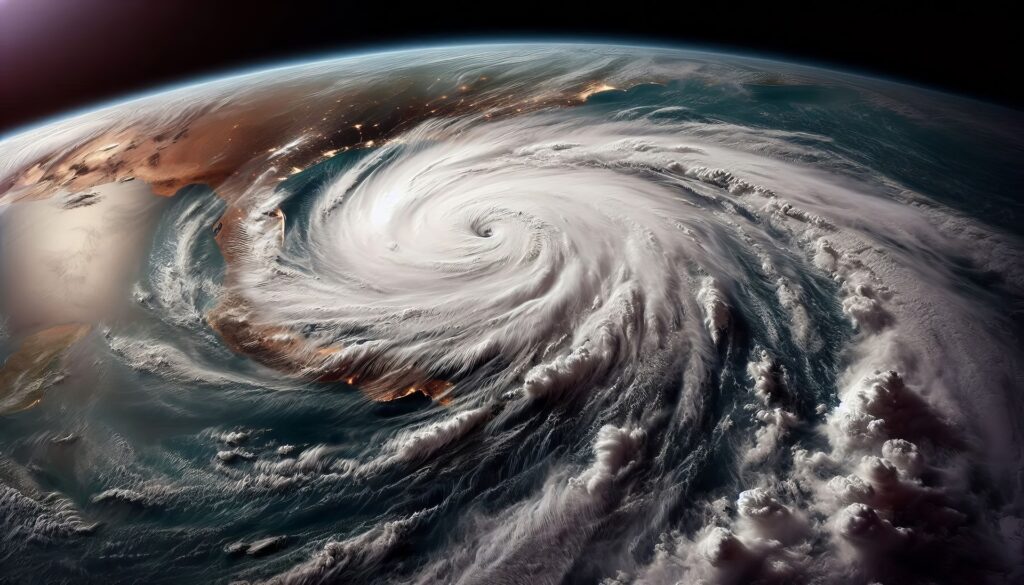
“Climbing up the mountain,” the man said, “you can count the number of water heaters that you see in the debris. That gives you an idea of how many people upstream have lost their houses.”
* * *
From behind the house a thundering sound crashes down the mountain. You run to the balcony to see an avalanche of mud and trees and doors and roofs and lumber roaring down the creek not 100’ below your house. Torrents of rain have transformed your yard into a lake, and it’s rising.
“Mommy! Mommy!” your 7-year-old screams, running to you and wrapping her arms around your legs. You see the neighbor’s truck from up the hill tumble by in the mud cascade.
The house is shaking as if it’s in an earthquake. You wrap your arms around your daughter and lead her to the fireplace, thinking maybe it will stand and support this part of the house.
“Stay here,” you tell her as the power fails. The house is dark and the only sound is the roar of turbulent mud washing away the world. You rush to get your cell phone and a blanket from the couch and snuggle next to your daughter, wrapping the blanket tight around both of you. You try to call 911 but there’s no signal.
* * *
I’ve watched dozens, maybe hundreds of videos in the wake of Hurricanes Helene and Milton, trying to get a clear picture of the extent of its impact and to learn how on earth people were coping with the unimaginable situation they faced.
Members of my own family were in Milton’s path. Thankfully, they are all okay and escaped irreparable damage. But I felt the sting of apprehension as the storm neared them, sending tornadoes across their city.
I’ve been heartened by the preparations and responses I’ve seen in Florida. While the destruction they face is impossible to assess yet and rebuilding with be a monumental effort, an organized response is in place.
The situation in western North Carolina is another story. The region is inland, not subject to hurricanes. The residents had no reason to expect what was about to befall them could ever happen.
The scene I described at the start was lived out by countless mountain families. And for many days, they were without help, stranded, with no power, no plumbing or running water, no cell phones, no internet, no radio, no transportation and a landscape torn to shreds and heaped with debris.
Some may still be waiting for rescue. Rivers now flow twenty feet from where they were before and are clogged with debris. Roads and bridges are washed out. Whole little towns have vanished.
The situation is different in North Carolina than it is in Florida. With no experience to draw from. the response is more haphazard and spontaneous. The locals have banded together and are working out what needs to be done and how they can do it. The obstacles are enormous.
To complicate matters, cold weather is setting in, and families have lost literally everything but the clothes on their backs. It’s been below freezing at night already.
Donations are pouring in. Local folks are organizing them, mostly setting up centers in churches, and they’re working on ways to get the supplies to those who so desperately need them.
On November 2 a large number of churches will be taking a second load of supplies up the mountains with a team of pack mules. The man describing the effort paints a clear and chilling overview of the situation and its challenges in his YouTube video, “Western NC update. OPERATION MOUNTAIN RELIEF” (He’s the man who made the statement about the water heaters in the debris.)
If you click “more” in the description below the video, he gives information about how you can donate and what is needed. Take the time to watch it. He plainly explains what’s real for the people there.
It’s not too late to organize a little collection effort of your own and get a donation into his hands. And it’s never too late to enclose both those who suffer and those who help in your prayers,
Congressman Chuck Edwards, Representative from North Carolina’s 11th District, also has a web page listing places that are accepting donations and listing what items are most needed. It lists the phones you can call to see what their current needs are and how to get contributions to them, however small.
Events are moving fast in our world. It’s easy to lose sight of events that happened two days ago, let alone a couple weeks before.
But sometimes events cry out for our continued attention. Give some of your attention to the people who need help, those in the North Carolina mountains and to those around you. After all, as James Crew’s poem “Neighbors” says, “Kindness is what keeps us alive.”
May you have a blessed week.
Warmly,
Susan
Image by Jack Drafahl from Pixabay